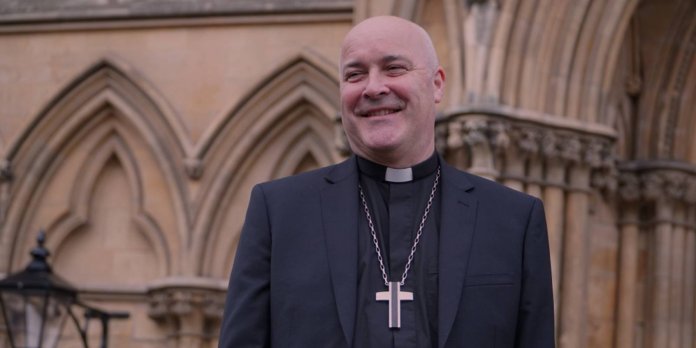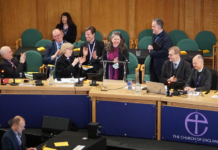At the end of Challenge Poverty Week, Archbishop Stephen writes in the Yorkshire Post
What are your dreams for the future of the UK?
What would you like this country to be like 30, 40 or 50 years from now, when our children or grandchildren’s generations are running the show?
I can probably give a good guess at what many of you are thinking now: most of us want action on the big social and environmental issues. We all want to live in a clean, safe, harmonious country where everyone has a fair opportunity to pursue their hopes and dreams, in good health.
This week, many campaigners, community groups and churches have been exploring their hopes and dreams as part of Challenge Poverty Week in England and Wales. The theme has been “Let’s End Poverty” and we’ve all been encouraged to share our dreams of what a better, more just future looks like.
That hope of ending poverty is a sound place to start. After all, any vision for the future of this country must include far greater economic and social justice. It would be a pretty feeble visionary who tried to sell us a future that leaves our neighbours and fellow citizens suffering needlessly. None of us wants a future of hunger and hardship. Rather, we all yearn for opportunity and hope, and so we must strive for this better vision of the future.
I know that is not easy, particularly for people on the frontline of poverty. When I chaired a roundtable on tackling poverty in Yorkshire two years ago, one of the speakers remarked that it could sometimes be hard to see beyond that week, let alone to imagine a better long-term future.
But that does not mean we should lose hope. Rather, it means we must demand more of those whose positions allow them to justify or frustrate our collective dreams. We must be tenacious and demanding; we must persevere and persist in our belief that the UK should end poverty, but also in our insistence that it does.
Let us remember, there absolutely does not need to be poverty in the UK. It is not natural or inevitable, but is entirely the result of human decisions. It is produced every time an unethical employer decides to pay pittance wages or imposes reduced hours; or whenever politicians adopt policies that perpetuate poverty and hold children back. And it is entrenched whenever we, as a society, opt not to listen to people who are living in poverty, and who know what needs to change.
This week, as part of Challenge Poverty Week, members of the Let’s End Poverty campaign launched the Dear Prime Minister publication, a collection of 15 letters from people with first-hand experience of poverty across the UK, all the way from Orkney to Cornwall.
Writers share, very movingly, the loss of dignity and respect that poverty brings. They call for genuine support, rather than more restrictions. They also highlight fantastic local projects that have brought decision-makers together with the people whose lives they affect – like Poverty Truth Commissions, and similar initiatives.
And the letter writers are hopeful. One, Steve, has been a volunteer at his local food bank for nine years, having first come to the food bank for food himself. He writes: “I had been injured at work, and had to leave my job, and I went through a lot of difficulty. Then, and now in my role as a volunteer, I have seen why we desperately need to end poverty, and what could be done to help us build a better future.… People should be able to get back on their feet and if the country acts to end poverty, people will be able to. Debt is all consuming and takes up people’s whole focus. But by ending poverty, people will be freed to make a difference in their life and in their community.”
So many people want what Steve does – to break free from poverty, so they can play a positive, active role in society.
Hopefully, politicians will heed these messages, starting with the Budget in two weeks’ time. This year I have been among many urging the Government to scrap the two-child limit, which limits the support given to children with more than one sibling. Ending this harmful policy would be the single most effective way of lifting children out of poverty, and it is something the Government absolutely ought to do.
But realising a hopeful, long-term vision for a just UK goes far beyond this Budget, and even this Government. It needs not just policy reversals, but a deeper, renewed national commitment. The UK remains one of the wealthiest countries in the world, we have the wherewithal to end poverty, and polling shows consistently that the public want action to end poverty. So let’s get on with it. Let’s remind ourselves of the kind of future we want for our children and grandchildren, and let’s commit to ending poverty.




[…] clergy in the Pension Action group might find their sob stories being interrogated by some of their parishioners were they to find out that their vicar was involved in the campaign. […]